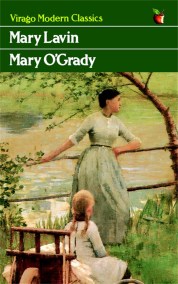
Mary Lavin
Mary Josephine Lavin (1912-1996) was a notable Irish short story writer and novelist. She is regarded as a pioneering female author in the traditionally male-dominated world of Irish letters. Her subject matter often dealt explicitly with feminist issues and concerns at a time when the primacy of the Roman Catholic Church and its abuses (e.g. the Magdalene Laundries) impinged extensively on Irish society.
Mary Lavin was born in Massachusetts, the only child of Tom and Nora Lavin, an immigrant Irish couple. Mary attended Loreto College in Dublin, before going on to study English and French at University College Dublin (UCD). She taught French at Loreto College for a while. As a postgraduate student, she published her first short story, Miss Holland, which appeared in the Dublin Magazine in 1938.
In 1943, Mary Lavin published her first book. Tales from Bective Bridge, a volume of ten short stories about life in rural Ireland, was a critical success and went on to win the James Tait Black Memorial Prize for fiction. Her literary career flourished; she published several novels and collections of short stories during this period. Her first novel, The House in Clewe Street (1945) was serialised in the Atlantic Monthly before its publication. She continued writing and won several awards for her work, including the Katherine Mansfield Prize in 1961, Guggenheim Fellowships in 1959 and 1961, and an honorary doctorate from UCD in 1968. Some of her stories written during this period, dealing with the topic of widowhood, are acknowledged to be among her finest.
Read More

